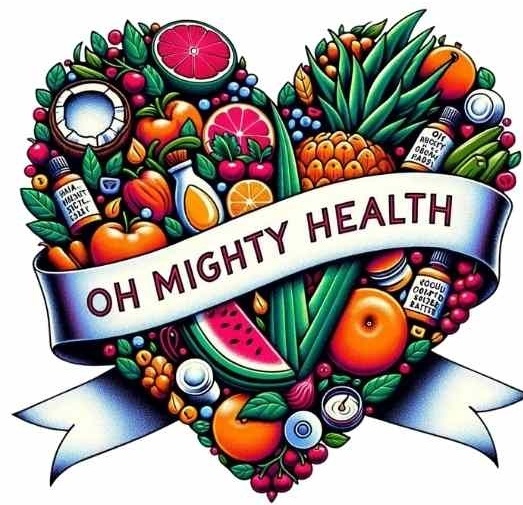When to Take Glutamine & Why
Our gut lining can easily get damaged and we need to use nutrients to repair it. According to Dr. Frank Lipman, glutamine is the main nutrient to repair the lining of our gut. Intrigued by the importance of this amino acid, I decided to dig a bit deeper and do a little research around when would we need to take it and other questions that might be of interest to you too.
When to take glutamine? You can consume glutamine-rich foods or supplements after talking to your doctor if you are recovering from an illness, have wound(s) or workout regularly. Available as capsules, powder, a liquid and tablets, it can be taken with or without meals. It and try regulate their Muinn system so that’s a different story or a similar story I’m in terms of menopause you are menopause is a tricky thing because during or especially as you go through menopause you tend to be more clothes into should not be taken with hot drinks because, being an amino acid, it can be affected by temperature. Also, avoid taking it with acidic juices like orange or lemon because it will diminish its benefits. The dosage of the supplement used is generally 5-10g daily, divided into 3 doses daily.
It is recommended to take it about one hour to one and a half hours before the intake of food if the glutamine is in tablet form.
Let’s take a look at how this amino acid benefits the body and other essential information around it.
INFO: Always check with your doctor before taking it, PARTICULARLY if you have liver or kidney disease or if you are pregnant or breastfeeding. Remember the information on this page is strictly informational, I’m not a doctor; I’m a Health Coach student and so you should always check with your doctor before starting to take any supplements.
Disclosure: This post contains affiliate links which means I’ll receive a small commission at no cost to you whatsoever when you make a purchase using my link.
Why take glutamine?
Glutamine is one of the most important amino acids in the body. It is found in many different foods including fish and meat as well as in plants. Glutamine aids in digestion and the absorption of nutrients so it is great for anyone who wants to get more healthy.
According to Dr. Frank Lipman, glutamine plays an important role in maintaining the gut lining. It can help repair the junctions between the cells in the lining of the gastrointestinal tract that are damaged by leaky gut syndrome.
This is what glutamine does:
- Protects our digestive tract
- Supports our immune system
- Preserves our muscle cells
Our bodies make glutamine but stores of it can get depleted when we exercise or suffer some form of trauma, infection or surgery. We store glutamine in our muscles and lungs.
Natural foods can help us produce glutamine. Here’s a helpful list according to Stylecraze:
- Red cabbage
- Milk
- Eggs
- Yogurt
- Ricotta cheese
- Nuts
- Beans
- Parsley
- Dark leafy greens (spinach, collard greens, kale, lettuce, radish greens, cilantro)
- Asparagus
- Legumes (lentils, chickpeas, peas, beans)
NOTE: I didn’t add meat-related food as I am against killing animals for consumption. I left the link for Stylecraze above in case you wanted to take a look yourself.
When to Take Glutamine
We should take glutamine when our body is under stress, when we have an infection or when we have suffered an injury.
Should I Take it Through Foods or Supplements?
You can increase your intake of glutamine-rich foods (see list above). Supplements will provide more glutamine than foods but consult your doctor about this before making a decision. Your doctor will also be able to help you with the type of supplement to take according to the condition that is being treated.
Is Glutamine Gluten?
No, it is not gluten.
What Glutamine Treats
- Treat Inflammatory Bowel Disease
- Wound Healing
- Bodybuilding
- Increase low levels of glutamine due to illness
How Long Should You Take Glutamine For?
Consult your doctor.
Are there Any Side-Effects I Should be Aware Of?
Although it rarely produces side effects because it occurs naturally in our bodies, too much glutamine can upset your stomach.
So, Am I Going to Take Glutamine Supplements from Now On?
No, not really. I already grow wonderful veggies in my garden, many of them rich in glutamine, and I already eat them regularly. The topic, however, has sparked my interest and in my next visit to the doctor, I will ask her about glutamine and see if there is interesting information she can offer besides what’s already in this blog post. In the meantime, I’ll keep an eye on the subject and try to learn as much as I can about this amino acid and how it can help me when it comes to health issues.
Let’s Get to Know Glutamine Better Together
I hope this article was helpful. If you have any questions, feel free to ask or leave anything you know about it that you find interesting in the comment section. Please, also share this article on your social media platforms to help others too.
Leave me your comments!
Love,
Patri ❤️💕
PS: I leave below a great video with Dr. Lipman on building immune resilience. I think he is simply brilliant.
Helpful Resources
https://www.wikihow.com/Take-Glutamine
https://www.winchesterhospital.org/health-library/article?id=21749
https://www.ncbi.nlm.nih.gov/pmc/articles/PMC4369670/
http://www.mayoclinic.org/drugs-supplements/glutamine-oral-route/description/drg-20064099
http://www.ncbi.nlm.nih.gov/pubmed/10582122
http://www.ncbi.nlm.nih.gov/pubmed/9263277
http://www.bodybuilding.com/fun/all-about-glutamine-your-expert-guide.html
http://www.ncbi.nlm.nih.gov/pmc/articles/PMC4033492/
http://www.ncbi.nlm.nih.gov/pubmed/17078002

